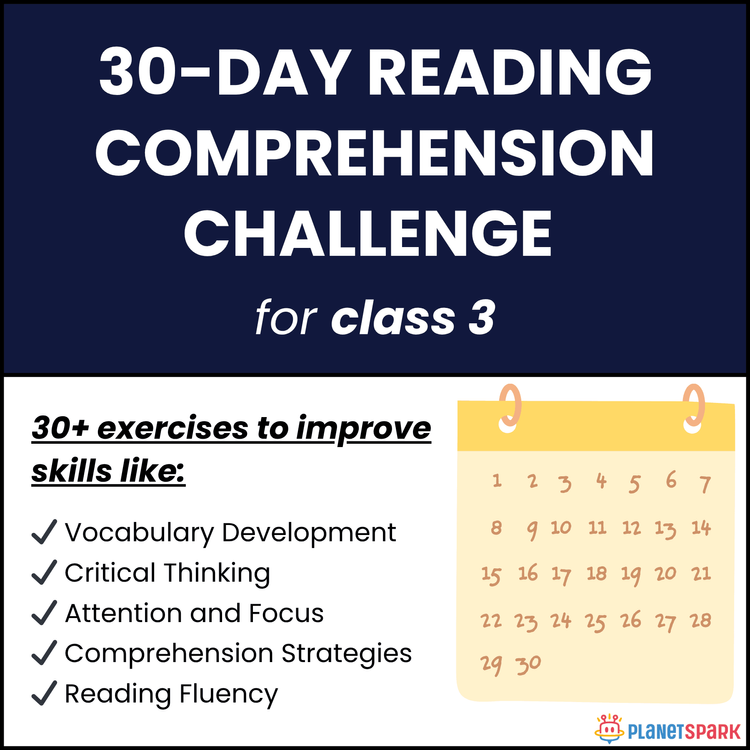30 Common Grammar Mistakes in English and How to Correct Them

Good grammar is the foundation of clear and effective communication. Whether you are writing an email, preparing a report, or speaking in public, the way you use language reflects your professionalism and credibility. Even small grammar mistakes can change the meaning of a sentence, confuse the reader, or make your writing look less polished.
The truth is, everyone slips up at times. From mixing up their and there to forgetting subject-verb agreement, common grammar mistakes can easily sneak into everyday writing. These errors not only affect readability but also reduce the impact of your message.
Top 30 Common Grammar Mistakes in English Everyone Should Avoid
Learn the 30 most common grammar mistakes in English and how to correct them. Improve your writing, avoid errors, and communicate clearly with these easy tips.
1. Subject-Verb Agreement Errors
One of the most frequent grammar mistakes happens when the verb does not agree with the subject.
Mistake: She go to school every day.
Correction: She goes to school every day.
Explanation: A singular subject (she, he, it) requires a singular verb, while plural subjects use plural verbs. Many learners forget to add “-s” or “-es” with third-person singular subjects.
Quick Tip: Always check if your subject is singular or plural before choosing the verb.
2. Misuse of Tenses
Mixing past, present, and future in the wrong way makes sentences confusing.
Mistake: Yesterday, I go to the park and will play football.
Correction: Yesterday, I went to the park and played football.
Explanation: Use the correct tense consistently within a sentence. If you’re talking about the past, keep verbs in the past tense.
Quick Tip: Identify the time (past, present, or future) before forming the sentence.
3. Wrong Use of Articles (a, an, the)
Articles are small words but very important.
Mistake: He is a honest man.
Correction: He is an honest man.
Explanation: Use “a” before consonant sounds and “an” before vowel sounds. “Honest” starts with a vowel sound, so “an” is correct.
Quick Tip: Focus on the sound of the word, not just the first letter.
4. Confusing Homophones
Homophones are words that sound the same but have different meanings.
Mistakes:
I left my book over their.
Your going to love this.
Corrections:
I left my book over there.
You’re going to love this.
Quick Tip: Double-check homophones in writing. Reading the sentence aloud often helps spot the error.

5. Run-on Sentences
Run-on sentences happen when two ideas are joined without proper punctuation.
Mistake: I love reading I don’t like writing.
Correction: I love reading, but I don’t like writing.
Explanation: Separate ideas need proper punctuation (comma, semicolon, or period).
Quick Tip: If a sentence feels too long, try breaking it into two smaller ones.
6. Sentence Fragments
A fragment is an incomplete sentence missing a subject or verb.
Mistake: Because I was late.
Correction: I missed the bus because I was late.
Quick Tip: Ensure every sentence has a subject and a verb.
7. Overuse of Commas
Too many commas make writing awkward.
Mistake: The dog, ran, across, the street.
Correction: The dog ran across the street.
Quick Tip: Use commas only when needed—for lists, pauses, or separating clauses.
8. Missing Commas
Forgetting commas can change meaning or make sentences hard to read.
Mistake: After eating the kids went outside.
Correction: After eating, the kids went outside.
Quick Tip: Add commas after introductory words or phrases.
9. Apostrophe Misuse
Apostrophes are often misplaced.
Mistakes:
Its a beautiful day.
The cat’s are sleeping.
Corrections:
It’s a beautiful day.
The cats are sleeping.
Explanation:
It’s = it is / it has.
Its = shows possession.
Apostrophes should not make plurals.
10. Double Negatives
Using two negatives in a sentence makes it incorrect.
Mistake: I don’t need no help.
Correction: I don’t need any help.
Quick Tip: Use only one negative in a sentence for clear meaning.
Make learning fun and effective! Book a PlanetSpark free demo class for your child today.
11. Misplaced Modifiers
When a word or phrase is placed in the wrong part of a sentence, it changes the meaning.
Mistake: She almost drove her kids to school every day.
Correction: She drove her kids to school almost every day.
Explanation: In the wrong place, “almost” makes it sound like she almost drove but didn’t. Correct placement makes the meaning clear.
Quick Tip: Place modifiers (words like almost, only, just) near the word they describe.
12. Dangling Participles
This mistake happens when a phrase at the beginning of a sentence doesn’t clearly connect to the subject.
Mistake: Running to catch the bus, the backpack was left at home.
Correction: Running to catch the bus, he left his backpack at home.
Quick Tip: Make sure the opening phrase describes the subject of the sentence.
13. Pronoun-Antecedent Disagreement
The pronoun must agree in number with the noun it replaces.
Mistake: Everyone must bring their book.
Correction: Everyone must bring his or her book.
Explanation: “Everyone” is singular, so the pronoun must also be singular.
Quick Tip: Match singular nouns with singular pronouns and plural nouns with plural pronouns.
14. Wrong Word Order
Incorrect order makes sentences awkward or unclear.
Mistake: Always she is late to class.
Correction: She is always late to class.
Quick Tip: Keep subject + verb order clear, and place adverbs (always, often, never) in the correct position.
15. Overuse of Passive Voice
Too much passive voice makes sentences weak and indirect.
Mistake: The cake was eaten by the children.
Correction: The children ate the cake.
Explanation: Passive voice is sometimes useful, but active voice is usually stronger and clearer.
Quick Tip: Use active voice unless the doer of the action is unknown or unimportant.
16. Incorrect Prepositions
Prepositions often confuse learners because they don’t always follow logic.
Mistake: She is married with a doctor.
Correction: She is married to a doctor.
Quick Tip: Learn prepositions as fixed phrases (e.g., “interested in,” “good at,” “afraid of”).

17. Incorrect Comparatives and Superlatives
Double comparatives or superlatives are common mistakes.
Mistake: This phone is more better than that one.
Correction: This phone is better than that one.
Quick Tip: Use “more” with longer words (more interesting) and “-er” with shorter ones (smarter). Never use both.
18. Misuse of Quantifiers
Words like few, a few, less, fewer are often mixed up.
Mistakes:
I have less books than you.
He has few friends (when you mean he has some).
Corrections:
I have fewer books than you.
He has a few friends.
Quick Tip:
Use fewer for countable nouns (books, cars).
Use less for uncountable nouns (water, money).
19. Incorrect Parallelism
Parallel structure means keeping similar forms in a list.
Mistake: She likes reading, to swim, and dancing.
Correction: She likes reading, swimming, and dancing.
Quick Tip: When listing, make sure all items are in the same grammatical form.
20. Redundancy in Sentences
Unnecessary repetition makes writing weak.
Mistakes:
Free gift
Advance planning
Corrections:
Gift
Planning
Quick Tip: Remove extra words that don’t add meaning.

21. Using Wrong Pronouns
Many learners confuse subjective, objective, and possessive pronouns.
Mistakes:
Me and John went to the store.
Who do you trust?
Corrections:
John and I went to the store.
Whom do you trust?
Quick Tip: Use I, he, she, we, they as subjects and me, him, her, us, them as objects.
22. Overuse of Slang or Informal Words
Slang is fine in casual conversation but not in formal writing.
Mistake: The report was kinda cool.
Correction: The report was very clear.
Quick Tip: Match your language with the situation—use formal English for emails, reports, or academic writing.
23. Incorrect Conditional Sentences
If-clauses often cause errors with tenses.
Mistake: If I will see him, I will tell him.
Correction: If I see him, I will tell him.
Quick Tip: In first conditionals, use present tense after “if” and will in the main clause.
24. Wrong Use of Capitalization
Unnecessary or missing capitals look unprofessional.
Mistakes:
I love english.
Yesterday We Went To The Park.
Corrections:
I love English.
Yesterday we went to the park.
Quick Tip: Capitalize only proper nouns, the first word of a sentence, and titles.
25. Incorrect Question Formation
Learners sometimes forget auxiliary verbs in questions.
Mistake: You are coming?
Correction: Are you coming?
Quick Tip: In English, swap the subject and the helping verb to form questions.
26. Missing Subjects in Sentences
Every sentence needs a subject to be complete.
Mistake: Went to the market yesterday.
Correction: I went to the market yesterday.
Quick Tip: Always check that your sentence has both a subject and a verb.
27. Overuse of Conjunctions
Using too many “ands” or “buts” makes writing clumsy.
Mistake: I like pizza and I like pasta and I like burgers.
Correction: I like pizza, pasta, and burgers.
Quick Tip: Use commas or split sentences instead of joining everything with “and.”
28. Incorrect Use of Hyphens
Hyphens are often missed or added wrongly.
Mistake: She is a well known author.
Correction: She is a well-known author.
Quick Tip: Use hyphens in compound adjectives before nouns (well-known writer, high-quality product).
29. Incorrect Use of Quotation Marks
Quotation marks and punctuation placement often confuse learners.
Mistake: She said, “I love reading”.
Correction: She said, “I love reading.”
Quick Tip: In American English, punctuation usually goes inside quotation marks.
30. Mixing British and American English
Using both styles in the same piece makes writing inconsistent.
Mistake: He loves colour, but he also likes organize.
Correction: He loves colour and prefers to organise (British)
He loves color and prefers to organize (American)
Quick Tip: Pick one style (British or American) and stick to it throughout.
Tips to Avoid Common Grammar Mistakes in English
Making grammar mistakes is normal, but with a few simple strategies, you can reduce errors and improve your writing significantly. Here are some practical tips:
1. Read Regularly
Reading books, articles, and well-written blogs exposes you to correct grammar usage. Pay attention to sentence structure, punctuation, and word choice.
2. Practice Writing Daily
Write short paragraphs, emails, or journal entries every day. The more you write, the more familiar you become with proper grammar.
3. Learn One Rule at a Time
Don’t try to memorize all grammar rules at once. Focus on one mistake you commonly make and practice it until you master it.
4. Use Grammar Tools
Tools like Grammarly, Hemingway, or Microsoft Editor can highlight errors and explain corrections. They help you learn while you write.
5. Review and Edit Your Work
Always proofread your writing. Reading aloud can help you spot mistakes that your eyes might miss.
How PlanetSpark Helps Kids Avoid Common Grammar Mistakes
At PlanetSpark, kids learn grammar in a simple, interactive way that makes rules easy to understand and apply. Through activities, storytelling, and expert guidance, children avoid common mistakes in tenses, punctuation, and subject-verb agreement while building confidence in writing and speaking.
Why Choose PlanetSpark?
Easy & Fun Grammar – Interactive sessions make learning simple.
Covers Key Concepts – Tenses, punctuation, subject-verb agreement, and more.
Expert Mentors – Personalized guidance for every child.
Error-Free Communication – Boosts confidence in writing and speaking.
Give your child the PlanetSpark advantage! Book a free demo class today and help them become a confident communicator.
Conclusion
Grammar mistakes are common, but they can be avoided with practice and attention to detail. From subject-verb agreement to proper use of quotation marks, each rule helps you write more clearly and confidently. By understanding these 30 common grammar mistakes in English and learning how to correct them, you’ll improve not only your writing but also your overall communication skills.
Frequently Asked Questions
The most common grammar mistakes include subject-verb agreement errors, tense misuse, wrong articles, punctuation mistakes, and confusing homophones.
You can avoid mistakes by reading regularly, practicing writing daily, reviewing your work, learning one rule at a time, and using grammar tools like Grammarly.
Correct grammar ensures clear communication, improves readability, and helps you appear more professional in writing and speaking.
Yes, frequent grammar mistakes can lower grades in exams, reduce clarity in professional writing, and affect overall credibility in communication.
Yes, tools like Grammarly, Hemingway Editor, Microsoft Editor, and ProWritingAid can detect errors and suggest corrections to improve your writing.
Improvement depends on practice, but consistent reading, writing, and reviewing mistakes can show noticeable results in a few weeks to months.
Download Free Worksheets
Personalized Communication Report
Record a video to get a AI generated personalized communication report for your child

Hi There, want to try these
tips for your child with
LIVE with our expert coach?
Let's check your child's
English fluency


